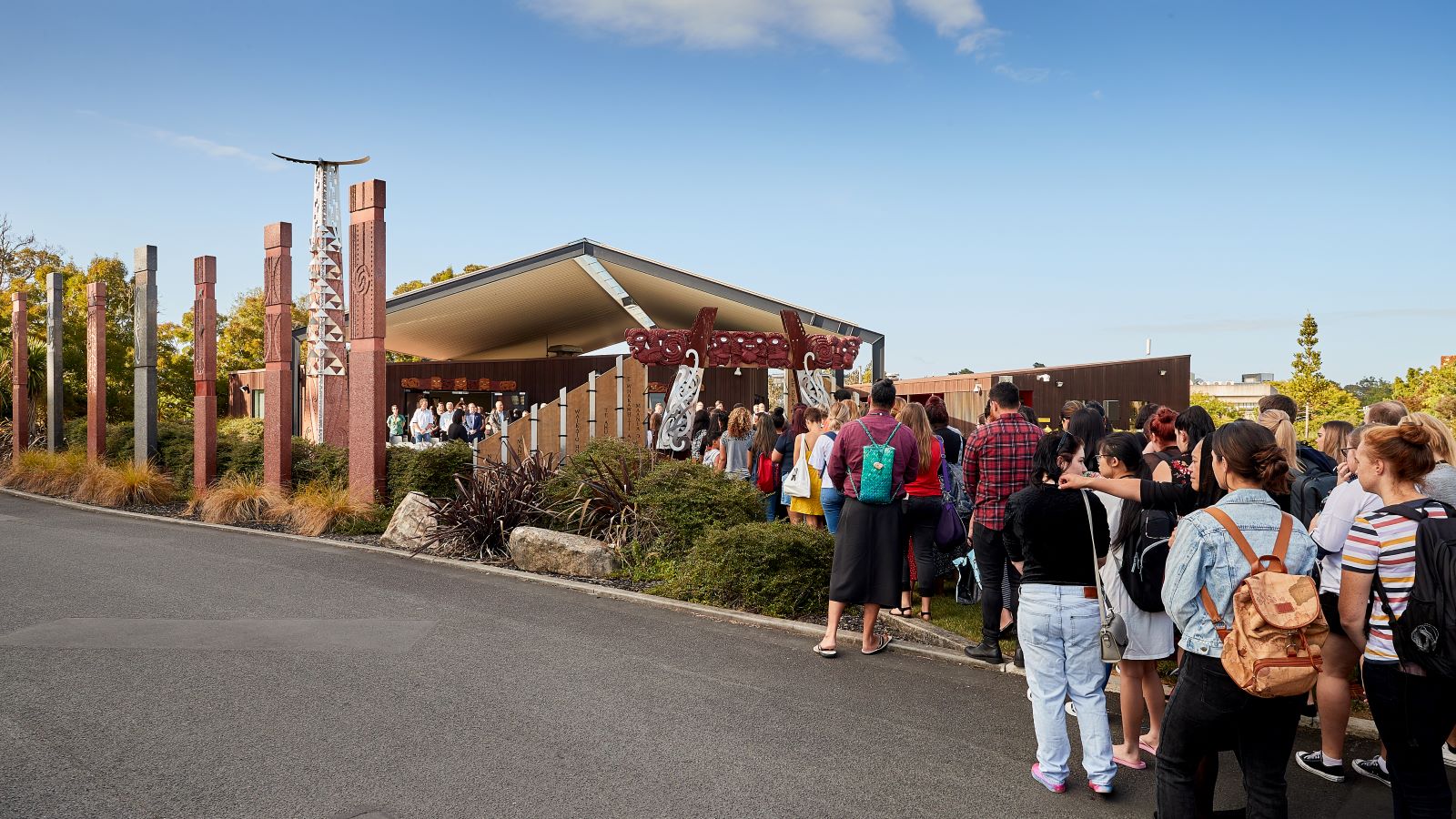New Zealand’s newest physiotherapy school is working for students

Learning in action: Wintec first year physiotherapy students with tutor, Sean Mathieson (far left).
When Waikato Institute of Technology (Wintec) developed New Zealand’s first new physiotherapy programme in 45 years, it presented an exciting opportunity to deliver a future-focussed qualification to improve healthcare within our communities.
It’s year one for Wintec’s first cohort of physiotherapy students and their tutors. Most of the first group of Wintec physiotherapy students are Waikato-based, while others are from Rotorua, Bay of Plenty and wider afield. A third of the students are school leavers and 39 percent identify as Māori or Pasifika.
Academic Sean Mathieson works within the teaching team responsible for developing and delivering the new physiotherapy curriculum at Wintec. Sean teaches across four of the year-one modules and is currently developing year-two content.
“It’s been a challenging and rewarding experience so far - especially the development of a new curriculum that is aligned with Wintec values and the programme’s desire to facilitate cultural responsiveness.”
Wintec’s inaugural cohort of physiotherapy students are experiencing a unique and flexible approach to learning. The programme is delivered through a blend of on-campus block courses and online learning platforms. This structure enables students to stay at home for the majority of their study, allowing them to remain engaged with their communities across the Midland Health region (the area covered by Waikato, Bay of Plenty, Lakes, Tairawhiti, Taranaki and Hawkes Bay District Health Boards) of Aotearoa, New Zealand.
For some students within the programme, this method of delivery has opened the door for them to undertake study that was otherwise closed.
Student, Terina McAleese, says “I never thought I would have the opportunity to study physiotherapy, even though I had explored the options. The way the course is structured also had a big appeal for me, the flexibility allows me to work through the content at my own pace.”
Sean says the adoption of the block course structure was an interesting challenge to navigate. However, since upskilling in the vast array of online tools and web-enhanced learning platforms, the opportunity to be creative with curriculum development is increasingly evident.
“When students are away from campus, we are continually connected through online video conferencing and our digital learning platform, Moodle. The block structure provides the same face to face teaching hours, it’s just delivered in an alternative way. This also enables students to remain at home and fulfil commitments and responsibilities that might otherwise have prevented them from studying physiotherapy.”
 Cultural responsiveness is a core part of the course and Wintec’s Te Kōpū Mania o Kirikiriroa Marae is at the centre of this.
Cultural responsiveness is a core part of the course and Wintec’s Te Kōpū Mania o Kirikiriroa Marae is at the centre of this.
In addition to this unique mode of delivery, the focus on cultural responsiveness has resonated with many students within the cohort.
Wintec’s programme has an intentional emphasis on New Zealand’s health inequities, particularly for Māori.
“What attracted me, was the focus on Māori and Pacific health service delivery and the opportunity to learn to be more culturally responsive,” says Terina.
A highlight for Terina has been the Māori healing class.
“It gave me a different view on how I could possibly approach my practice in the future, and the benefits of incorporating a more holistic approach for patients.”
Sean explains the programme selection process has an emphasis on community and cultural engagement.
“All students are actively involved in their own communities. This programme has been developed to help our rural regions and Māori and Pasifika communities flourish.
“It’s awesome to see our first students embracing this vision.”
Another first year physiotherapy student, Tui Turner, holds a sport and exercise science degree.
“I love the science behind how the body moves, and how we can help optimise movement patterns – especially after injury. I have the found the course to be super supportive compared to previous study. The lecturers and staff want us to succeed.” Hands-on learning: Year one Wintec physiotherapy students (from left) Jesse Brown and Teina Joseph.
Hands-on learning: Year one Wintec physiotherapy students (from left) Jesse Brown and Teina Joseph.
Hamilton-based Teina Joseph was studying a Bachelor of Sport and Recreation in Auckland and he moved back home to the Waikato to study physiotherapy at Wintec.
“In the short time I have spent at Wintec, I have learned that there are a lot more pathways a physiotherapist can go down, other than just the musculoskeletal path that most people know physiotherapists for.”
Tui also sees an exciting range of opportunities for her future.
“I hope to eventually have my own practice or be involved in something that will change our health system for the better.”
Sean says the goal for next year’s intake is to see more students from the wider Midland Health region and a greater proportion of Māori and Pasifika students.
“This is an encouraging prospect as we believe our students will ultimately be change-makers within the physiotherapy profession.”
Find out more about studying physiotherapy at Wintec.
Educators gather to grow Māori and Pasifika learner success
Why mental health first aid is more than a Band-Aid

















